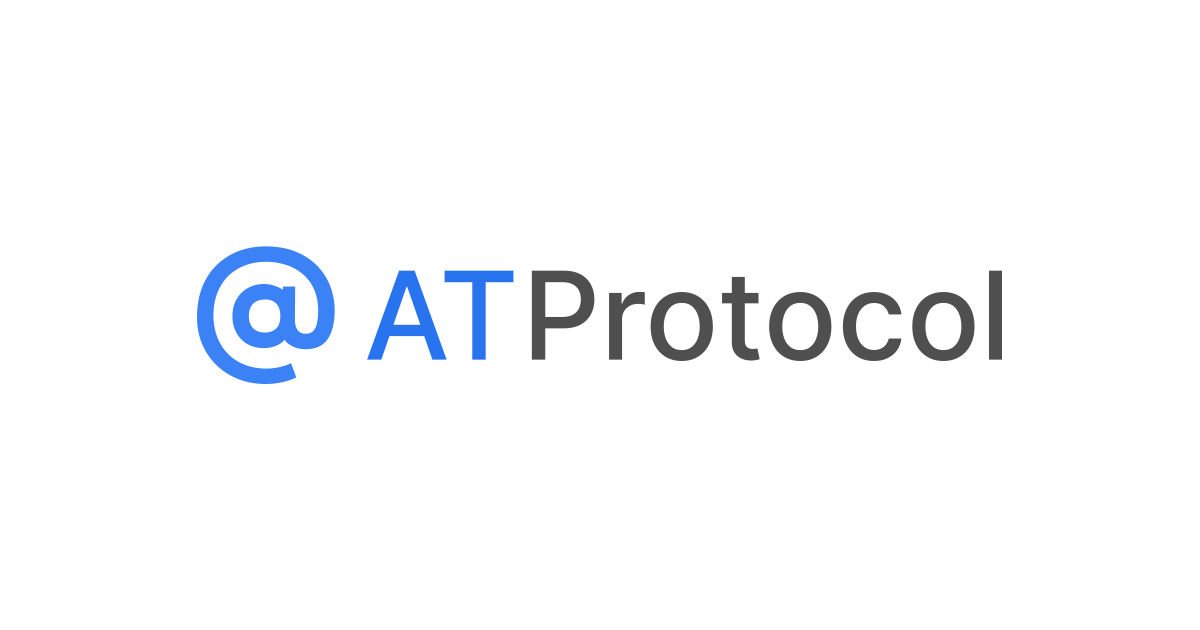Bora M. Alper
- 37 Posts
- 52 Comments

 1·16 days ago
1·16 days agoRevolt relies on community self hosting last I looked at it
I think on the contrary they are not big on self-hosting nor federation so they have a better chance at becoming a “mass” solution. While you can self-host, it doesn’t federate like Matrix and in practice everyone is on the “first-party” instance (revolt.chat).

 2·17 days ago
2·17 days agoI feel dumb. 🤦♂️ Thank you!

 2·18 days ago
2·18 days agoRequires a phone number.
Which one? Revolt?

 191·18 days ago
191·18 days agoIn all fairness, I think the FOSS community lacks good messaging tools so people end up using:
- for personal messaging: WhatsApp (very popular in Europe), iMessage (in the US), Telegram (Brazil and Asia)
- for communities: Discord and Telegram
- for businesses: Slack (popular in tech) and Teams (~all the rest)
Signal has been gaining momentum for personal messaging but its unrelenting focus on privacy comes with some significant usability tradeoffs: (1) it doesn’t have a web-app that I can use from other computers that I don’t control (eg a work laptop), (2) it doesn’t sync well between my phone (primary) and desktop apps (secondary), (3) it doesn’t have a “bots” API like Telegram does so its creative uses are very limited, (4) third-party clients are officially disallowed.
Matrix might be a good fit for communities and businesses (which have very distinct moderation needs as in a business you can just report users to HR hehe), but in my experience it (or its flagship client Element) has lots of performance issues that makes it unpleasant to use. It also reminds me of XMPP with its different extensions and not knowing which clients supported which extensions; for example, go to https://matrix.org/ecosystem/clients/ and click around to discover that many clients don’t support threads yet. All that being said, I think Matrix is still the one that’s best positioned to win the communities.
For businesses, I think the “open core” model is pretty competitive: you have Rocket Chat, Mattermost, and Zulip. In fairness I think they made significant strides so I’d consider them pretty successful in their own regard, despite Teams dominating the market by abusing Microsoft’s monopoly and Slack’s popularity + coupling with Salesforce. Now, the issue is that those three “open core” software aren’t very useful for communities because again, their moderation models are very different. Moderation is a ~non-issue in a business setting where you have HR and other functions to enforce the rules and penalise accordingly.
Long story short, what’s your FOSS alternative to Discord for communities? Revolt maybe?

 12·19 days ago
12·19 days agooh no! wasn’t bluesky decentralized and federated?!?
The articles take is actually much more nuanced and neutral than that, but it still really amounts to the same thing.
I agree that the article is much more nuanced than that: “But how Bluesky and ATProto handle moderation, and the way that it can be sidestepped, show that [decentralisation] is not a hard requirement.”
I would like to make one thing that the article is alluding to clearer, that is, this is a cat-and-mouse game. So far the Turkish government is happy with having “significantly restricted the visibility of accounts they deem unwanted” but the moment Turkish netizens start sidestepping the moderation (e.g. via third-party clients), the government will step up their game as well and will ask Bluesky to moderate content at AppView or perhaps even at Relay level.
I know that this is a cat-and-mouse game because web censorship in Turkey started with DNS-tampering at first, which people started circumventing by simply changing their DNS servers, and then the government implemented IP-blocking (including of popular VPN providers) and even Deep Packet Inspection. I’ve experienced this first hand but you can read more about it here: Internet censorship in Turkey (2015)

 4·20 days ago
4·20 days agoThat’s a really beautiful & concise way of putting it <3

 4·20 days ago
4·20 days agoTheir account is still available outside of Turkey so check it out for yourself: https://bsky.app/profile/carekavga.bsky.social
10 posts only, most of which are after their account got censored, so just a couple introductory posts before that’s all. I suspect the government requested its takedown because the account belonged to a politically active person that was influential enough to cause worry.

 2·20 days ago
2·20 days agoThe other way you become 4chan.
I think there is a sensible middle ground. :)

 5·20 days ago
5·20 days agoCan Turkey ask for any account/post to be banned regardless of where a post was written?
One can always ask and when it comes to countries, it depends on how convincing they can get. Legally speaking (IANAL), I believe that it’s within countries’ right to ask regardless of where the author is from if a content violates their local laws.

 611·26 days ago
611·26 days agoThe article is a year old, fyi.

 3·27 days ago
3·27 days agoThat’s a good question: I don’t mean that 100% of their stack should be FOSS but
- Most of their “code”, or their core offering, should be FOSS. For instance, Codeberg is powered by free software (Forgejo), in addition to being hosted in Europe.
- More importantly and inclusive of the first point, they should adhere to FOSS ethos: users should be able to export their data easily in a standard format, federate with other instances running compatible software, and so on. For instance, Bluesky is free software implementation of free AT Protocol, but Bluesky is also the only provider (instance) of that service. There is an effort named “Free Our Feeds” who is looking to raise 4 million dollars to setup a second instance while Mastodon has 200+ instances alone listed on its website. :)

 81·27 days ago
81·27 days agoAbsolutely, and it’s already pretty hard to bootstrap a community organically† to so you should not hesitate to do what’s necessary to keep it healthy as small communities cannot moderate themselves easily.
† From How Reddit Got Huge: Tons of Fake Accounts:
Well, according to Reddit cofounder Steve Huffman, in the early days the Reddit crew just faked it ‘til they made it. In the above video for Udacity, an online source for education and lectures, Huffman describes how the first Redditors populated the site’s content with tons of fake accounts.

 121·27 days ago
121·27 days agoGlad to hear! As I said, Lemmy is still so young that it makes perfect sense. Even much more mature and much larger communities take similar measures:
- Hacker News users cannot downvote anything until their karma is > 500 and even then only comments (not submissions) [source].
- Some large Reddit communities such as r/politics hide downvote buttons altogether or for non-subscribed users. They even ran a study back in 2018: Does Hiding Downvotes Improve Behavior in r/politics?
Community cultures vary widely, but in the case of r/politics, hiding downvotes does not appear to have had any of the substantial benefits or disastrous outcomes that people expected.
I’m not saying that downvotes are bad, but that people abusing downvote mechanism are bad and that it’s okay to ban such users while bootstrapping a community.

 171·27 days ago
171·27 days agoIn my opinion replacing US Big Tech with European alternatives is bullshit unless they are also free software. Many European alternatives who started in Europe later moved to the US when they got big for better access to capital etc. It’s like moving from Twitter/X to Bluesky only to see its enshittification 10 years down the line.

 2610·27 days ago
2610·27 days agoBan them.
Lemmy is so young (and feeble) that users like those are an actual threat to your community and the larger network by driving away those who actually contribute to the community. In 2019, TrueBirch from Reddit analysed the data and concluded that only 1.9% of users actually comment or post while 98.1% just lurks. When your community is has a thousand or so users, it’s entirely reasonable to protect those ~20 users who are creating content for the rest. In fact, the majority of the rest likely don’t upvote things either.

 21·1 month ago
21·1 month agoBy “Fediverse” people usually refer to “ActivityPub”-based social networks such as Mastodon and Lemmy.
People also rightfully argue that Bluesky, despite the best of intentions, is not decentralised. See How decentralized is Bluesky really? (long read).
 1·2 months ago
1·2 months agoSee Reflections: The ecosystem is moving (2016) by Moxie Marlinspike the founder of Signal (privacy oriented secure messaging app).
The gist of it is that decentralised systems are more difficult to evolve by their very nature, therefore we need centralised but public† services to keep up with the pace of centralised and private ones. Another emphasis is on the word “services” as software alone is often not sufficient without some server component, centralised (e.g. Signal) or federated (e.g. Lemmy).
† Public as in the commons: owned and controlled by non-profits for the benefit of public.
Why?
There is BitTorrent which I’m sure you’re aware of, and then there is also WebTorrent which you may not.
I’m also actively working on this exact problem with WebMirror with the key difference being that it works in browsers without requiring any additional software. Here is its demo: https://webmirror-demo.netlify.app/











Cory Doctorow put it more eloquently in Pluralistic: Predicting the present: